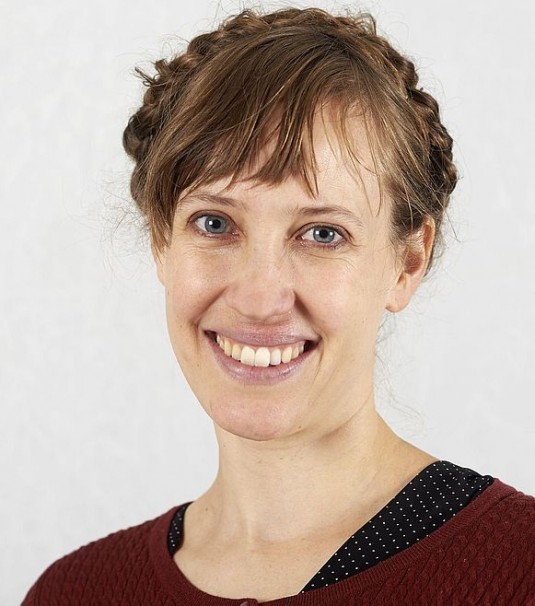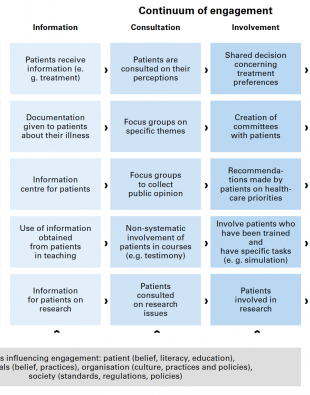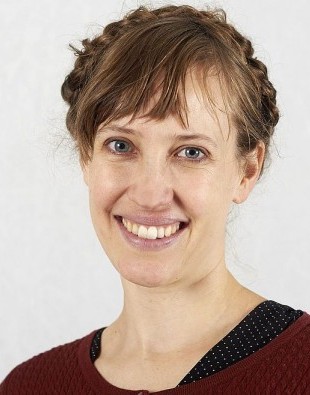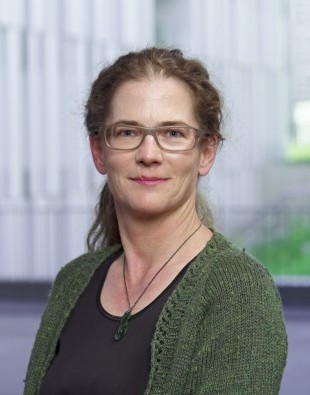
“Our experience is very positive”
Nov. 2019Engaging with patients
Interview. Five questions for Denise Schwegler from the female genital cutting prevention unit at Caritas Switzerland. The unit assists and supports “multipliers” – key individuals in the communities from countries where cutting is practised. The unit partners with the multipliers to organise awareness events and counselling. By doing so they help protect at-risk girls and women.
1 Why is Caritas Switzerland working with volunteers in its efforts to prevent female genital cutting?
We refer to these people as multipliers, not volunteers, because we sign a contract with them and pay them for the work they do. There are around fifty men and women working with us in their communities to put an end to female genital cutting. They are essential to our efforts because they are the only way we can access the Somalian, Eritrean and Ethiopian populations, which often exist in isolation. The multipliers have the same background and speak the same language. Very often, they themselves are affected. Because they enjoy a high level of acceptance within their communities, they can address the often taboo issue of female genital cutting, and, in the best-case scenario, begin the process of bringing about a change in values.
2 How do you go about finding your multipliers?
In 2006, Caritas Switzerland set up a central counselling unit dedicated to preventing female genital cutting, most of the funding for which comes from the Federal Office of Public Health. Since then we have been running annual training courses for both male and female migrants as well as writing to interpreter referral services. Existing multipliers’ personal networks are also extremely important as a channel for motivating acquaintances and relatives to get involved too.
3 How do Caritas Switzerland and its multipliers divide up the work?
We support and coach our multipliers. Before they start their work, we give them a basic knowledge of the issue and brief them on the counselling services we provide. We also give them regular training once they are out in the field because we want to be sure that we are providing prevention counselling sessions and information events of the right quality. When multipliers organise awareness events, they decide where they should take place and invite people to attend. They also act as facilitators at the event and interpret if a specialist from the anti-cutting network speaks to the audience.
4 What experience have you had with this partnership? What works well and what are the challenges?
All in all, our experience has definitely been positive. The multipliers are helping us achieve our goals. We want to prevent girls being cut, but we also want to make sure that everyone in Switzerland has access to healthcare where possible. Because a lot of the women we meet at our events are unfamiliar with the Swiss system and often vulnerable too, they do not know that all forms of female genital cutting are a criminal offence in this country. They are frequently also unaware that they can get medical help or free advice. One of the major challenges facing our multipliers is the exposure within their community that the role inevitably involves. They need courage to counter the critics who accuse them of portraying the community in a bad light. For those of us who work in the cutting prevention unit, the challenge stems from the extreme heterogeneity of the multipliers, not only in terms of engagement and activities, but also in terms of education and familiarity with electronic media. Some do not even have an e-mail address.
5 Does Caritas Switzerland partner with volunteers in other areas too?
Yes, we do. We feel the model is a successful one and use it in other projects. We benefit greatly from partnering with volunteers because the work they do helps to create social cohesion.




